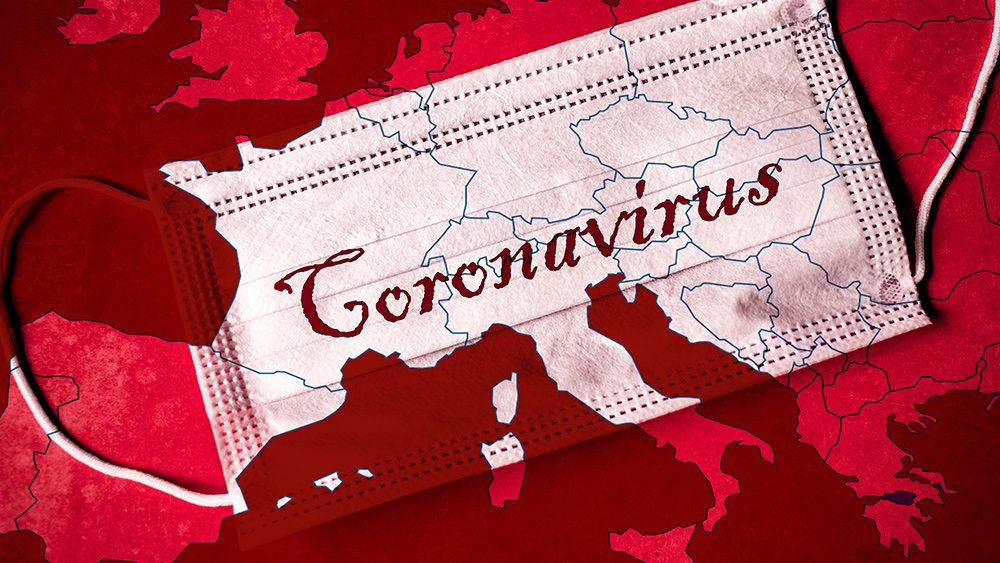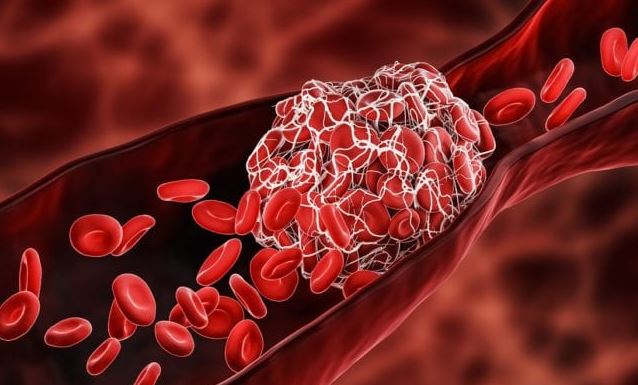Ginkgo biloba leaf can help dissolve micro clots, potentially undoing some damage caused by COVID-19 vaccines, reveals new published science
07/15/2024 / By Lance D Johnson

The ginkgo biloba tree, one of the oldest tree species on Earth, harbors a medicinal compound that can help the body dissolve micro clots. This herb is more important now than ever before because it could help undo cardiovascular damage caused by the mRNA transcription of spike proteins from the COVID-19 vaccines.
The leaves of the ginkgo biloba tree possess fibrinolytic properties (the ability to dissolve blood clots). These clot-busting compounds include diterpene terpenoids, notably ginkgolides and bilobalide. Due to its fibrinolytic properties, ginkgo supplements are often used to improve blood flow to the brain, increase memory retention, and improve cognitive function. Today, this compound could be used to combat the influx of cardiovascular issues caused by lab engineered spike proteins.
Ginkgo biloba may be valuable for addressing the vaccine injury crisis
The SARS-CoV-2 spike protein has been linked to the formation of micro clots and subsequent fibrosis, especially in vaccinated individuals whose immune systems cannot clear the spike protein. Cardiovascular patients who suffer from “long covid” often deal with blood clots and inflammation of the endothelial cells. Ginkgo can improve these conditions by dealing with inflammation of the inner lining of the blood vessels and by activating plasminogen.
Beyond its direct impact on clotting mechanisms, Ginkgo biloba has shown promise in alleviating the neurological symptoms associated with vaccine injuries and long COVID. Its neuroprotective properties, including anti-inflammatory and anti-apoptotic effects, suggest broader therapeutic potential in managing the multi-systemic impacts of the disease.
Moreover, research indicates that Ginkgo biloba may interfere with viral replication and inhibit inflammatory pathways associated with severe COVID-19 outcomes. In an enzymatic inhibition assay, researchers found that ginkgolide A can act as an irreversible inhibitor against SARS-CoV-2 papain-like protease. This dual-action approach — addressing both viral replication and vascular inflammation of the disease — positions Ginkgo biloba as a compelling candidate for integrative strategies for the management of vaccine injuries.
Ginkgo also contains flavonoids like quercetin, kaempferol, and isorhamnetin, which protect the cells from further spike protein damage, oxidation, and inflammation. In one study, kaempferol improves the recovery of cardiac function, reduces intracellular oxidation status and Myocardial Ischemia and inhibits myocardial apoptosis.
In another study, ginkgo biloba extract (GBE) influences the renin-angiotensin system and modulates inflammatory responses in cardiac cells via the TLR4/NF-?B pathway.
Most importantly, ginkgo biloba is a plasminogen activator. This process activates the body’s ability to break down clots. Ginkgo enhances endothelial cell function by stimulating the secretion of thrombomodulin and tissue-type plasminogen activator (t-PA), which are pivotal in clot breakdown and regulation of the coagulation cascade. These mechanisms not only support its role as a natural antithrombotic agent but also highlight its potential in preventing and treating conditions exacerbated by clotting disorders, such as those induced by the vaccine.
Due to these actions, ginkgo helps address other conditions, including:
- Anxiety and Stress Relief: Ginkgo biloba has been shown to have a calming effect on the nervous system, making it a potential natural remedy for anxiety and stress relief.
- Glaucoma Treatment: Ginkgo biloba may help reduce the risk of glaucoma, a condition that can cause vision loss, by improving blood flow to the eyes.
- Neuroprotection: Ginkgo biloba may help protect the brain from damage caused by free radicals and oxidative stress, which can contribute to neurodegenerative diseases such as Parkinson’s and Huntington’s.
- Tinnitus Relief: Ginkgo biloba has been used to treat tinnitus, a condition characterized by ringing or other sounds in the ears.
- Dementia and Alzheimer’s Prevention: Ginkgo biloba may help prevent or slow the progression of dementia and Alzheimer’s disease by improving blood flow to the brain.
- High Altitude Sickness Prevention: Ginkgo biloba has been studied as a potential natural remedy for preventing high altitude sickness, although more research is needed to confirm its effectiveness.
- Leg Pain Relief: Ginkgo biloba may help relieve leg pain caused by clogged arteries or poor circulation.
- Vascular Dementia Treatment: Ginkgo biloba may help treat vascular dementia; a condition caused by reduced blood flow to the brain, a medical problem affecting the current U.S. President and members of Congress.
Sources include:
Submit a correction >>
Tagged Under:
Blood clots, brain function, circulatory system, endothelial function, ginkgo biloba, microclots, natural cures, natural health, natural medicine, natural remedies, oxidative stress, plasminogen activator, prevention, research, spike protein, therapeutics, vaccine damage, vaccine injury crisis
This article may contain statements that reflect the opinion of the author
RECENT NEWS & ARTICLES
COPYRIGHT © 2017 PLAGUE INFO



















